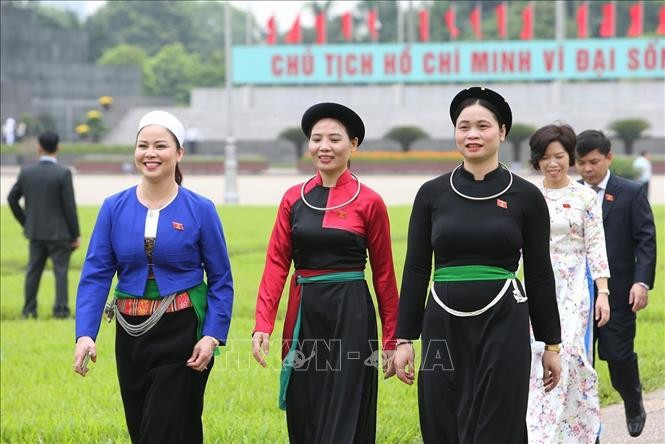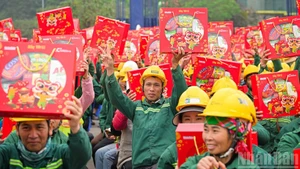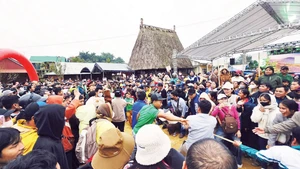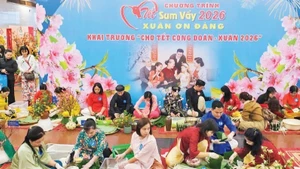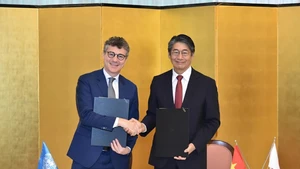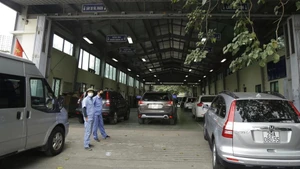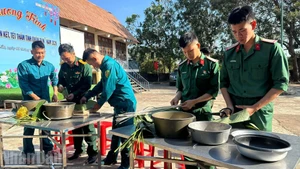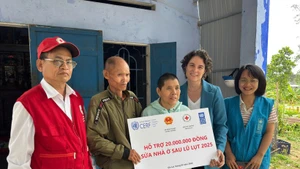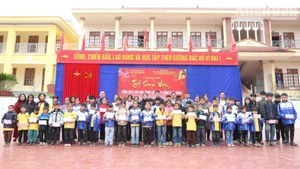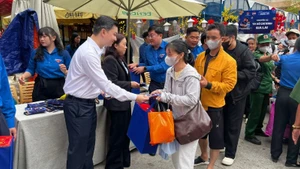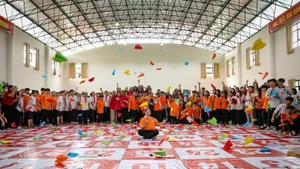The Vietnam Women's Union has played a crucial role in carrying out many activities to support women and promote gender equality. Recently, the union held a conference in Hanoi to review the union’s 15-year implementation of the Law on Gender Equality in order to provide a foundation to propose amendments, supplements and improvements to the policies and legal documents on the issue.
According to the report delivered at the conference, the inspection of the implementation of the law on gender equality by women’s associations at all levels has been increased in both quality and forms.
Women’s associations at all levels have presided over the implementation of more than 13,767 inspection events, and coordinated with functional agencies in over 9,150 inter-sectoral delegations.
In the 2007-2021 period, nearly 15,000 cases of violations of the legitimate rights and interests of women and children were detected, with more than 11,485 cases handled.
At the same time, the union also pays attention to giving comments and recommendations on laws and documents that directly involve women, children and gender equality.
In addition, the union has provided prompt support women in starting businesses as well as collective models managed by women.
The union has also developed more than 100 specific models in ethnic minority-inhabited areas and the living areas of religious practitioners to help local women promote their role in the family economy.
Although many encouraging results have been achieved in narrowing the gender gap, the delegates at the conference also pointed out current barriers facing women in participating in the labour market, particularly for ethnic minority women, those living in rural areas, and women with disabilities.
They also acknowledged the lack of a strategy and synchronisation in the communication work and mobilisation of union’s members and women in general to join events on promoting gender equality.
In addition, some women’s associations at local levels have not been proactive in coordinating with the justice sector and functional agencies in promoting the legitimate rights and interests of women and girls.
Promoting gender equality and increasing the participation of women in all aspects of life is an important factor for sustainable socio-economic development as well as for a better life for people.
In order to achieve a higher standard of gender equality, ministries, sectors and localities need to further popularise the Law on Gender Equality to the public. Gender equality can only be achieved if women have a positive change in their mind-set and awareness of their values and are provided with support to develop their own abilities.
It is also necessary to strengthen the management, supervision, inspection of gender equality and promptly handle violations of the legitimate rights and interests of women and girls.
Most importantly, women’s associations at all levels need to promote their role in advising their local authorities and functional sectors to create favourable conditions for local women to build happy families, eliminate gender-based violence, and create safe spaces for women and girls.
